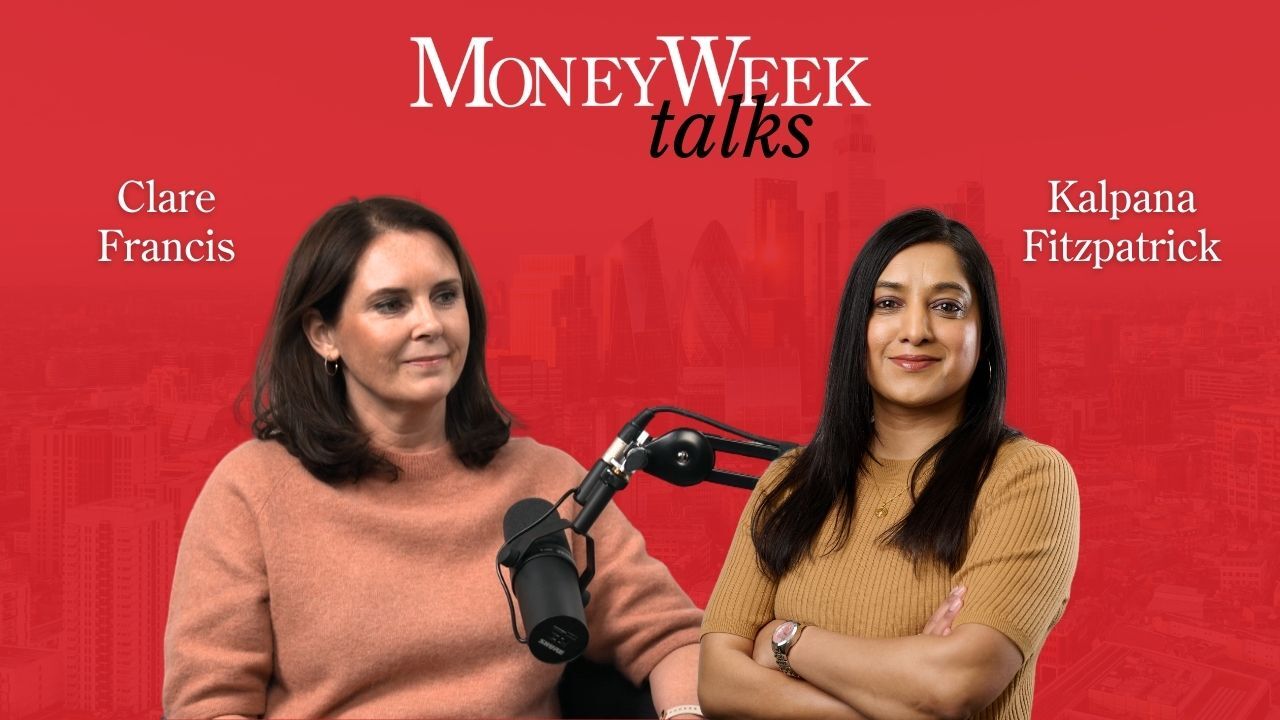The search for safe havens for your money
With the eurozone in crisis and the global economy faltering, where is safe for investors now? Eoin Gleeson and Sean Keyes consider the best new havens for your money.
Get the latest financial news, insights and expert analysis from our award-winning MoneyWeek team, to help you understand what really matters when it comes to your finances.
You are now subscribed
Your newsletter sign-up was successful
Want to add more newsletters?
With the eurozone in crisis and the Swiss franc being artificially weakened, Eoin Gleeson and Sean Keyes consider the best new havens for your money.
Everyone knows that Europe is in trouble. That's not news. The difficulty lies in knowing how to profit from it. Markets are swinging between bursts of optimism and troughs of deep despondency, without much logic to the swings. But by looking at what's happened in the past when currency unions have collapsed, we can get a good idea of what might happen next and invest accordingly.
We've been here before
In 1878, with their empire in decline, the Austro-Hungarians embarked on an ambitious project. They decided to launch a single currency the Austro-Hungarian crown hoping it would foster trade and help forge an unshakeable economic union to rival Britain's and Russia's. It didn't end well. Forty years later, Yugoslavia withdrew from the Austro-Hungarian empire and launched its own currency pitching the union into abject turmoil. That's when the exodus began.
Try 6 free issues of MoneyWeek today
Get unparalleled financial insight, analysis and expert opinion you can profit from.

Sign up to Money Morning
Don't miss the latest investment and personal finances news, market analysis, plus money-saving tips with our free twice-daily newsletter
Don't miss the latest investment and personal finances news, market analysis, plus money-saving tips with our free twice-daily newsletter
Afraid of seeing their life savings wiped out, Austro-Hungarians rushed to Yugoslavia and the new currency. In response, the new government tried to seal the borders. But that didn't stop the flood, says Michael Spencer of Princeton University. Soon vast quantities of crowns were migrating from one state to another. Tonnes of cash turned up in Hungarian and Romanian bank accounts much of it carried across borders in night crossings by desperate Austro-Hungarians.
The same thing is happening today as the eurozone splinters. At the airport in Athens, passengers are regularly caught leaving with upwards of €100,000 in cash. In Ireland, property developers have been quick to transfer vast quantities of wealth into their partners' name and then hop on the first plane to Florida. And the capital flight is gathering pace. Germany's Spiegel news magazine cites data from the central banks of Italy and Germany, indicating that more than €80bn was pulled out of Italy in August and September. That money clearly went somewhere but where?
The London property market has proved popular. Knight Frank estimates that €290m from Greece was invested in London last year alone it's a key reason why London's property market has remained so resilient in recent years. But until 6 September, the most popular destination was a Swiss bank account. That all changed when the Swiss National Bank got sick of the surging Swiss franc and moved to kill its safe haven' status pledging to buy "unlimited quantities" of foreign currencies to weaken the franc. The big question for investors is: which safe havens' will take Switzerland's place?
Destination 1: Norway
Is there a more lucky country in the world than Norway? It sources 98%-99% of its power from hydro-electricity, even while it boasts a colossal oil field just a few miles off its coastline. It is the fifth-largest oil exporter in the world, not to mention the second-largest exporter of fish. It also has the lowest unemployment in Europe.
And there are only about five million Norwegians to share all this natural wealth. "That makes them extremely rich," says MoneyWeek's Bengt Saelensminde, a Norwegian native. In fact they're so rich, they don't know what to do with all that money. In 1995, Norway put together a sovereign wealth fund to deal with all the excess cash. It's now worth around €400bn around €80k for each citizen.
That has not passed unnoticed by hordes of investors during the euro collapse. Norway had a 10.5% budget surplus last year the biggest of all top ("AAA") rated sovereigns. So when Switzerland announced its offensive in September, Norway was one of the first destinations to take its place. According to Bloomberg, the Norwegian krone rose by 10.2% against the franc in just two days.
That's not great for the Norwegians. It will harm tourism and hurt exporters. The country is also concerned about rampant house-price inflation prices rose 8% in the first six months of the year but fear of further currency strength might put the central bank off raising interest rates. So could the Norwegians possibly repeat the same currency stunt as the Swiss?
Not likely, says Bengt. "While we can't rule out deliberate debasement, the Norwegians are likely to find better solutions." For example, as the Norwegian krone grew stronger in September, finance minister Sigbjrn Johnsen entered talks with banks and insurers to limit the availability of credit, according to Bloomberg.
So it still looks a good idea to stock up on kroner. The main risk is a collapse in the oil price. That would hurt Norway. But it may not be such a problem for the Nordea Norwegian bond fund, says Nick Sudbury in The Zurich Club newsletter. The fund is largely invested in Norwegian government and corporate bonds (around 40% in each) much of it AAA-rated. And you can hold it in an individual savings account (Isa). You can buy it through Redmayne Bentley (0113 243 6941).
Destination 2: Canada
Canada is another country that is packed with hard assets. It has timber; It has water; and with the Alberta tar sands, Canada is fast emerging as a major oil exporter too. That's why "the Canadian dollar is one of my favourite currencies", says Tim Price in The Price Report. Better yet, the Canadian government has not faced a single bank failure. "Unlike their Anglo-Saxon cousins, they refused to loosen financial regulations and so their banks have far lower leverage," explains Price. Last year, the World Economic Forum rated Canada's banking system as the world's soundest. They also have their national finances in order: Canada has enjoyed 14 years of budget surpluses. Yes, Canada might be vulnerable to a collapse in resource prices, but who would you rather trust not to debase your wealth in the midst of a meltdown the Bank of Canada or the Bank of England?

But what if the world is entering an all-out currency war? Why place your trust in any government? Ultimately, there is only one currency that cannot be arbitrarily devalued by monetary authorities: gold. That's why Price recommends the Central Fund of Canada (TSX: CEF/A). This closed-end investment firm intends to maintain at least 90% of its net assets in gold and silver bullion, of which at least 85% must be in physical form.
There are three reasons to buy this fund, says Tim. One, the Canadian dollar exposure. Two, the fact that it is domiciled in Canada. Three, the protection offered by gold and silver bullion. You may already own gold, but this is a great alternative to protect yourself against looting by desperate governments.
Australia is a great place to invest long term
Australia leads the world in economically recoverable reserves of commodities, such as nickel, lead, uranium and zinc, and ranks second in the world in its reserves of gold, silver and copper, plus a few others. Huge trains run from mines at inland mountain ranges to colossal new shipping terminals on the desert coast. There, barges and tankers are loaded with raw materials, bound for the ports of Shenzhen, Jakarta and Seoul.
Australia has certainly made the most of its commodities boom. The Australian government owns all the mineral wealth in the territory of Australia and its waters. So, unlike many other Western peers, it is solvent. More than that, it's projected to be free of debt by 2020. That's a feat that will be matched by only a handful of other countries. As The Economist points out, it has also dealt with a problem that many governments are trying to ignore pensions.
The cost of retiring the baby-boomer generation is projected to cripple many countries. But Australia's "super", or defined-contribution superannuation scheme, is entirely solvent. By and large, baby boomers, not the state, will pay for their own retirement. That could prove to be the key difference between Australia and, say, the US between solvency and bankruptcy.
So what are the key risks? One is the Australian central bank mimicking the Swiss National Bank's devaluation movethis September. But the Australian dollar has already started to ease amid concerns about a Chinese slowdown, so this is less of an immediate worry.
Something we'd be more concerned about is the fact that, although Australia's mineral wealth is diverse, its customers are not. A crash in China which certainly looks possible would badly hurt its export economy and its outsized mining industry. So we'd be wary of making short-term investments in the country.
In the long term, however, the investment case is strong. Australia has a young population, pro-growth politics, boundless mineral wealth and, soon, zero government debt. Although the road will be bumpy, Asia will continue to industrialise and it's a safe bet that Australia will still be selling raw materials to the region for decades to come.
So what should you buy? Steve Sjuggerud in the True Wealth newsletter recommends tracking Australian stocks. The iShares MSCI Australia fund (LSE: SAUS) offers a simple London-listed way to do that it tracks the Australian MSCI index, which is dominated by the big mining companies such as BHP Billiton and Rio Tinto, and the four large Australian banks. Australian stocks are great value, says Sjuggerud. The dividend yield is above 4%. As a foreign investor, you don't need to worry about a strong Australian dollar hurting exporters, since any pain for natives is a gain for foreigners.
This article was originally published in MoneyWeek magazine issue number 565 on 25 November 2011, and was available exclusively to magazine
subscribers. To read all our subscriber-only articles right away, sign up for a
three-week free trial now.
Get the latest financial news, insights and expert analysis from our award-winning MoneyWeek team, to help you understand what really matters when it comes to your finances.
Eoin came to MoneyWeek in 2006 having graduated with a MLitt in economics from Trinity College, Dublin. He taught economic history for two years at Trinity, while researching a thesis on how herd behaviour destroys financial markets.
-
 The UK regions with the highest proportion of homes above the inheritance tax threshold
The UK regions with the highest proportion of homes above the inheritance tax thresholdHigh house prices are pushing more families into the inheritance tax trap across the country
-
 Are money problems driving the mental health crisis? MoneyWeek Talks
Are money problems driving the mental health crisis? MoneyWeek TalksPodcast Clare Francis, savings and investments director at Barclays, speaks about money and mental health, why you should start investing, and how to build long-term financial resilience.